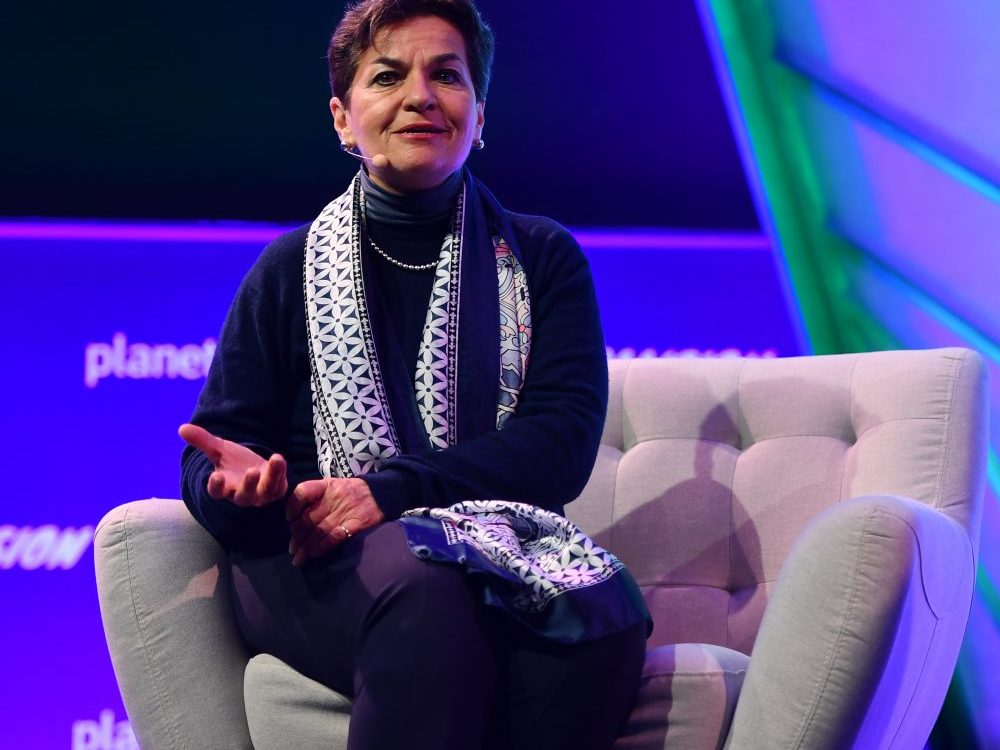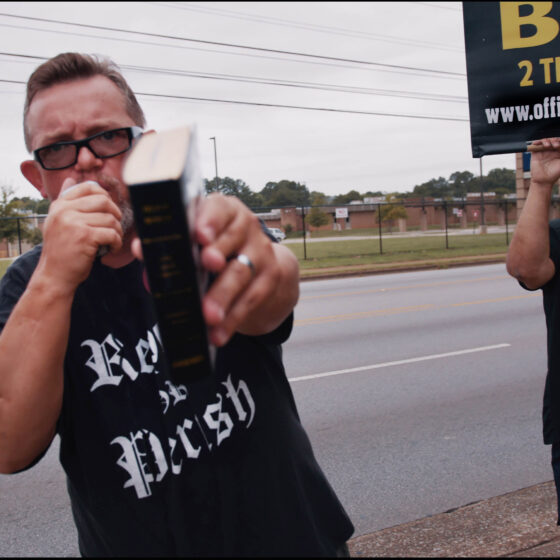She’s the diplomat who engineered the Paris Climate Agreement, but Christiana Figueres is also the deal’s fiercest critic, campaigning endlessly for faster and more wide-reaching global progress on climate change. Speaking exclusively to Restless, she outlines her hopes for the process, her frustration with Donald Trump’s ‘Dark House’ and the “stubborn optimism” that gets her through…
We’re meeting at Collision, North America’s fastest growing tech conference. I think some people might be surprised to see you here. Tell me why you attend industry events like this…
“Well, it just makes sense, because the fact is that all the technologies we’ve been relying on for the past 50 years are going to fail. They’re no longer fit for purpose. So, this is the moment in which we have to embrace disruption, and the breaking of everything that we used to know. Nothing is really answering the huge challenges that we have on bio-diversity, climate change and social equity, so we need a global disruption, and conferences like this are where that’s happening.”
I think, by its very nature, the Paris Agreement itself was disruptive. No-one expected you to get there in 2015. Did you know you were going to succeed where others had failed?
“That’s very true and no, I definitely didn’t. But it was a commitment that I made to myself and that thousands of other people made to themselves, and I’m eternally grateful to the thousands of people who worked so hard for five years to make the Paris Agreement possible. I continue to think that the agreement was absolutely fundamental and critically necessary to addressing climate change, but it was also insufficient.”
Insufficient in what sense?
“The agreement is not static, it will accompany the evolution of the economy for decades, but it remains a plan if it’s only on paper. And if it’s not executed or implemented, it’s a very wonderful plan that sits on someone’s shelf. So, having reached that agreement, the next responsibility that we all have is to use all of the technologies we have, and to continue pushing on new ones, so we can get to a much more efficient economy. And what we really have to understand is that all of the carbon we are emitting right now from our economies is the result of inefficiency, of not thinking through how we can have the same quality of life without producing the emissions and the negative impact. We have to stop being so lazy and start thinking about how we can get food and clean electricity and transport to everyone, and close the inequality gap more efficiently with respect to carbon emissions. That’s the challenge we have ahead of us, and I think we’re in a very exciting time because, slowly but surely, we’re building a much better world. It’s the slowly part that’s the problem.”
The USA has made a lot of noise about withdrawing from the Paris Agreement. That must be disheartening for you to see…
“The fact is, the US can’t pull out of the Paris Agreement until November 6, 2020, and the country has its election on November 3 that same year, so we’ll have to wait and see what happens there. But the way I make sense of it to myself is to see it as a bifurcated reality. There’s one international political reality that is being led by the Dark House – which is my name for a White House that doesn’t have any lights on with respect to anything whatsoever. It’s a politics that is going to the extreme right and giving up on everything that shows a serious responsibility for the world, giving up on multilateralism, on environmental and social concerns, on equity, and that is trying to turn the page over entirely to irresponsible, frankly egotistical goals. This is one reality in the international political sphere. But then we have the other reality, which is the real economy and what we see here [at Collision Conference]. It’s a private sector that, while not being motivated by saving the planet, is being motivated by a new understanding that profit can and should be made while improving the state of the planet, regenerating the damage that we have done over the past 50 years, and closing the equity gap. It’s all those things that we now understand are not competing with each other but rather are supportive of each other and contribute to a very different view of economic growth to the one that we used to have. That’s what we’re seeing here, with the explosion of new and disruptive technologies that are very exciting and that are going to help to build a very different world.”
We’ve seen, in recent months, millions of children and young people walking out of their classrooms and taking to the streets in protest at slow global action over climate change. What is your response to the impact they, and their leader, 16-year-old Greta Thunberg, are having on an international scale?
“I am so grateful to Greta and the youngsters participating in this process because the reason I have devoted my life to climate change is not because of me – I’m 62, so I’ll be out of here in 40 years if not before. It’s about our young people and the fact that they have finally woken up to realise that this is really about them and that the full impact of climate change, I will probably not witness, but anyone under 35 today will. This really is about their lives, and three, four, five and six generations down from them. So, I’m very grateful that they are not just wakening up but that they are outraged and irate about the fact that we ‘responsible’ adults have been sleepwalking our way into this disaster with nothing but a Paris Agreement that, yes, is moving forward, but is doing so at a pace that frankly isn’t fast enough or on the scale that’s needed.”
Greta was on your podcast and she justified the school walkouts by saying those children are otherwise ‘learning for a future that is being stolen from us’. That struck me as a very succinct way of summarising her stance…
“It is, absolutely, a very succinct way of saying it, and I think the incredible virtue of Greta is that she doesn’t put what she says through a mental filter of political correctness. She just speaks after being seized with outrage over what she sees and feels, and that has been very refreshing. We have to understand that my generation is the first generation to have full knowledge of the science, to have all of the capital available to us, and to have a vast amount of the technology necessary to act on this. And it’s the first generation to have the Paris Agreement which is the path to take this forward. So, I think the responsibility is very clear and I am very grateful for all of the push we get from young people, and for older people who have increased their awareness on this issue.”
Do you think your generation is starting to pay more attention on this issue?
“To a degree, yes. I recently came across a movement that was started by a grandfather who decided that he won’t make up his mind on how to vote, but instead is going to ask his granddaughter. He is going to vote the way she would vote, because she is still under 18. Now, that is a very interesting example, because grandparents (sadly I’m not there yet but I would love to be. Don’t tell my children!) should absolutely live up to that realisation that this is no longer about their lives or their lifetimes. This is about their grandchildren’s lifetime. So, every grandparent should turn to their grandchild and say, ‘I still have a vote, you don’t have it yet, how do you want me to vote for you?’ That is how we take responsibility.”
Do you think industry is doing enough to fulfil its role in that bigger picture?
“The tech industry is doing fantastic things on E-mobility and driverless, better transportation, renewable energy, smart grids and battery development, and all of that is very, very important. And also, not enough. Because if there is anything we know it’s that the climate challenge, as I used to call it, has moved to being a climate crisis and emergency. We all have to up our game and realise that the economic stability that we have largely been enjoying over the last 50 years is threatened now. We could well get to points on climate change where we see physical disruption that is going to destroy infrastructure, destroy wealth and decrease all types of economic growth. If you see a car crash about to happen, you do something about it. You don’t stick your head in the sand and think that if you don’t look at it, it won’t happen. It is happening, and we all have a responsibility to stand up.”
Your father showed himself to be well ahead of the climate curve during his three terms as president of Costa Rica, taking huge environmental steps as far back as the late 1940s. How big an influence did that have on you, and how do we all instil that sense of environmental importance in our own children?
I’m sure that both of my parents’ trajectories influenced us, because that’s what we had for dinner every night. You can’t avoid it when those are the conversations that you have. But I actually think that most young people have woken up to this and I see more and more young people educating their parents about responsible use of energy and water, of the power of purchasing decisions and being mindful of packaging. That’s already increasing. What I am more concerned with is the huge urbanisation trajectory that we are seeing and will continue to see, where most people are going to be living in cities. Because if that means we are now divorcing ourselves from nature, that is a problem. We need to be very careful about how we design our cities into the future to ensure that we bring nature into the cities and into our homes, and allow children to grow up without being divorced from greenery. We need to ensure that our children understand that everything nature produces is what we ultimately depend on.
You’ve spoken widely about the role optimism has played in getting you to this point. Are you still an optimist?
Always. I don’t say that flippantly though, I say that very seriously, because we don’t have another choice. I don’t think any adult alive right now wants to look at him or herself in the mirror 20 years from now and say, ‘this happened because I chose not to do something about it’. We don’t have a choice. We have to do this because there is no other way. I am stubbornly optimistic, because there is no other alternative.
Burying your head on climate change? Here are Christiana’s five ways we can all, individually, make a difference.
1. Stop eating meat. If you eat meat seven days a week, go down to six, then five, and work your way to zero. It’s good for your personal health as well as being good for planetary health, so that is a very doable thing, especially as we now have so many options for plant-based protein that make very easy substitutes.
2. Take a look at your home and the building where you work, and ensure they are properly insulated. Make sure you are not heating the entire neighbourhood in the winter and cooling the entire neighbourhood in the summer, because that’s simply an irresponsible waste of energy, as well as being an unnecessary dip into your pocket. Energy efficiency in homes and buildings is key.
3. Make sure that you are being very discriminatory about the way that you transport yourself. In some countries, such as the United States, people are still transporting themselves as single individuals in large SUVs that could move an elephant. That’s totally irresponsible. You can share rides, you can use more fuel-efficient cars, and if you don’t you’re not only being irresponsible to the planet but to everyone who is walking around you too, because the emissions from those vehicles are killing seven million people around the world.
4. If you are of an age where you already have some available capital that you can afford to invest in savings, take a look at where you’re saving it. If your savings are being invested in high-carbon funds or in any corporations that are still, in 2019, producing high-carbon assets, get out, because you’re going to lose your money.
5. If you live in a democracy, vote. Vote with your head. Vote for leaders who recognise climate change as the biggest threat and danger that we’ve ever faced, who understand that we have to enact our policies accordingly.









